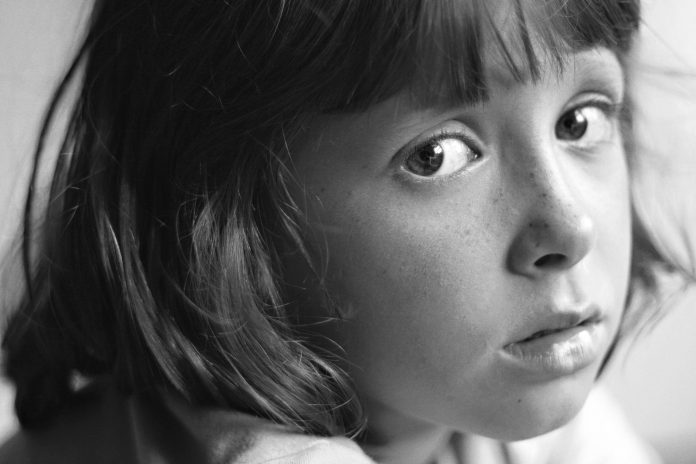Family law Barrister Paula Rhone-Adrien speaks about the suffering of vulnerable people in the wake of COVID-19 mistakes by the UK
On the 23rd March 2020, a date that is now written into the history annals of the United Kingdom, we went into lockdown. COVID-19 had already wreaked its devastating deathly path across east Asia and was now creeping its way across Europe. Of course it was only a matter of time before it reached our island shore.
Let’s be frank, it is easy to be insightful with hindsight in your corner. However, with the government’s daily briefings now becoming part of the Nations’ regular TV viewing, the question was bound to be asked: Were we prepared for COVID-19?
Was the UK ready for COVID-19?
The shocking pictures of NHS workers appearing on social media and across mainstream news in states of harrowing distress due to witnessing countless deaths, drove the nation to clap our gratitude each week. However, such workers, from the “low skilled” to NHS management, continued to plea for the necessary protective wear – PPE – that the government would consistently state was on its way. In the meantime NHS workers continued to lose their lives. To protect their families, some NHS workers decided to stay away and so children were forced to see their parent observing the two metre distance or through a window for weeks on end. The pressure that was placed on these families is unimaginable and continues to date.
It has been reported that in the run up to lockdown, Boris Johnson had missed 5 COBRA meetings that had been specifically set up to consider planning and strategy implementation for the impact of COVID-19. Further, there is the clear feeling across the NHS that there has been a failure to adequately protect staff from the disease. No doubt an inquiry will follow, but whatever the outcome, in the meantime the World Health Organisation are already informing nations to prepare for a second wave.
So, what can we learn from this period of time that ensures we protect our communities in the future?
Who was hit the hardest by COVID-19 mistakes?
Those who have been hit the hardest over the last 2 months are categorised as “vulnerable”. This large group of people consist of those 1.5 million who are deemed clinically vulnerable; some 24,000 children identified as such by the Department of Education (although the Children’s Commissioner for England, Anne Longfield, is quoted as identifying “hundreds of thousands of children who are off the radar”); those residing in care homes; and victims of crime, in particular, domestic abuse.
Another silent group that have been identified recently is those suffering from ill health who are not going to see their GP due to COVID-19 fears, when ordinarily they would have done, for fear either of catching the disease or of causing a strain on the NHS.
I am sure those who have lost loved ones in care homes (the figure of loss currently standing at 12,500) were distressed to see or read in the news how carers were ill equipped with PPE and/or did not have a clear understanding of what to expect from the disease. The Metropolitan police identified over 100 calls a day were being received in London alone citing domestic abuse, whilst national domestic abuse charities were constantly appealing to the government for further funding to replenish their depleted resources and to bolster their current services that were being inundated with requests for help.
Only 1 in 20 of the vulnerable children expected to go to school during lockdown have been attending, which is a shocking statistic in itself. However, consider that the Family Courts in England and Wales oversee the care of many of these children. These same courts are currently operating to 40% of their usual capacity, due to COVID-19 mistakes in planning.
With these numbers in mind, there can be a real understanding of the imminent threat these children face.
Vulnerable children can also grow up in homes were domestic abuse is prevalent (the statistics tell us 1 in 5 children do). The government has rightly accepted over the last two months that charities helping such victims needed more funding, as their limited resources have become stretched due to the exponential increase in those seeking help.
The £76 million package of support offered by Robert Jenrick, the Communities Secretary, to charities assisting vulnerable members of our society (not just domestic abuse) will not go far enough. Why? Well, if you consider the cost of domestic abuse to our economy alone: in 2017 (the most up to date figures available) the government measured this cost as amounting to £66 billion pounds, far exceeding the sum recently offered.
Are these people ready for the second wave?
So, what lessons can we learn from the last two months to ensure we can be ready for a predicted second wave or for the possibility of a new virus encroaching on our way of life?
By its very definition, those who are most vulnerable will suffer the most. In protecting our most vulnerable, working purely at a national level will not suffice. Expecting a local domestic abuse charity; for example, to bid for funding against a national domestic abuse charity is simply unfair and counter-productive. We have seen over the last two months how our local warriors have had to step in to fill the holes left by national agencies who simply cannot reach the communities quickly enough, or where that local authority is unable to assist due to debt and the stark possibility of bankruptcy.
Policy suggestion to fix COVID-19 mistakes
Surely it is better to equip our local authorities with the funding available? They are able to move far quicker than at the national level, they understand the needs of their communities better and more importantly it is easier for the community to access those in power at a local level for the help they need. In the wake of COVID-19 mistakes by policy-makers, it is time to focus on how to efficiently fix those problems and help individuals.
If the government do galvanise our local authorities into action, perhaps the treatment of those in care homes will be approached in a more sensitive and focused manner; the domestic abuse hubs and access to hotel rooms sought by victims of domestic abuse would be arranged; and Council’s could focus on the vulnerable children in their community being supported by more than just a telephone call from their teacher once a week. A strategic group designed and implemented at a local level is the key to ensuring our communities successful survival, particularly if we move to a time where the concept of local lockdowns become a reality.











